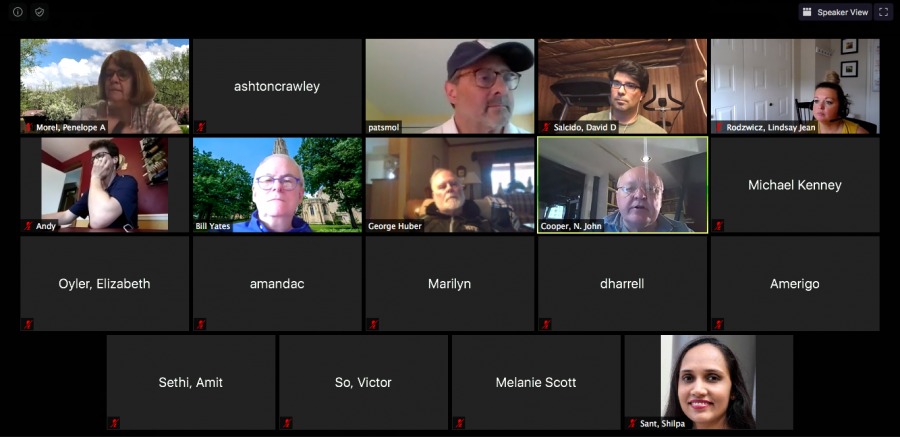Research labs to become operational in coming weeks
The complexities of restarting research labs was the main focus of Friday afternoon’s Senate Research Committee meeting.
May 29, 2020
N. John Cooper, the deputy vice chancellor for research, said Friday that research labs would be operational again in the next few weeks after closing due to the COVID-19 pandemic, following departments receiving approval from their respective dean.
“That process starts on Wednesday and there will probably be some people in pretty quick,” Cooper said. “The statement from facilities two days ago was that all research buildings would be ready June 1.”
Rob Rutenbar, the senior vice chancellor for research, said in a Friday email blast that each lab’s principal investigator must submit a plan to their dean or regional campus president for review. The plan must clearly define an approach for scheduling and a process for allocating time and access to address COVID-driven implications, Rutenbar said.
The complexities of restarting research labs was the main focus of Friday afternoon’s Senate Research Committee meeting.
Pitt’s labs have to take many precautions in order to reopen, such as requiring employees to keep track of everyone within the lab they’ve come into contact with and having the same employees working the same shifts regularly. Other labs have begun using QR codes to keep track of equipment usage.
Since each lab is different, the procedures will vary. For example, the animal research labs cannot allow researchers into the lab past a certain time or it will interfere with the circadian rhythms of the animals — making it difficult to have multiple shifts.
One of the main focuses of the meeting was clear communication between faculty and administrators about restart procedures. Bill Yates, a professor of neuroscience and co-chair of the research restart task force’s animal resources working group, said communication up to this point has not been good.
“[The dean’s office] communicated to chairs and assumed the chairs were going to relay the information to faculty and that has not happened in a number of departments.” Yates said. “A number of faculty are in the dark and are very concerned that they’re not getting the information.”
Yates added that it’s difficult for some chairs to have the authority to approve the reopening because not all of them understand what it’s actually like in the labs.
“You have to have some standardization across the board.” Yates said.
Lindsay Rodzwicz, Coulter Program Administrator in the Department of Bioengineering, said communication not just within the task force’s working groups is important, but between each of the three task forces planning fall operations.
“It feels like we’re operating in a vacuum. There are also additional details we need from the logistics and operations committee. I have not received any communication about non-laboratory activities,” Rodzwicz said. “If you’re putting people in labs, we need the plans in place for lunch rooms and bathrooms.”
Other concerns, such as parking were voiced at the meeting. Many faculty and grad students who utilized public transportation in the past to commute to labs are now uneasy about potentially exposing themselves to the virus and would like to drive instead.
Many of the labs also have large numbers of international student researchers, which makes the process of restarting more difficult. Shilpa Sant, an associate professor of pharmaceutical sciences, said the majority of her incoming graduate students are from overseas and are planning for an online semester.
But Cooper said although there is much uncertainty, Pitt is working to reopen labs as soon as possible.
“We can’t afford to not open in the fall,” Cooper said.



